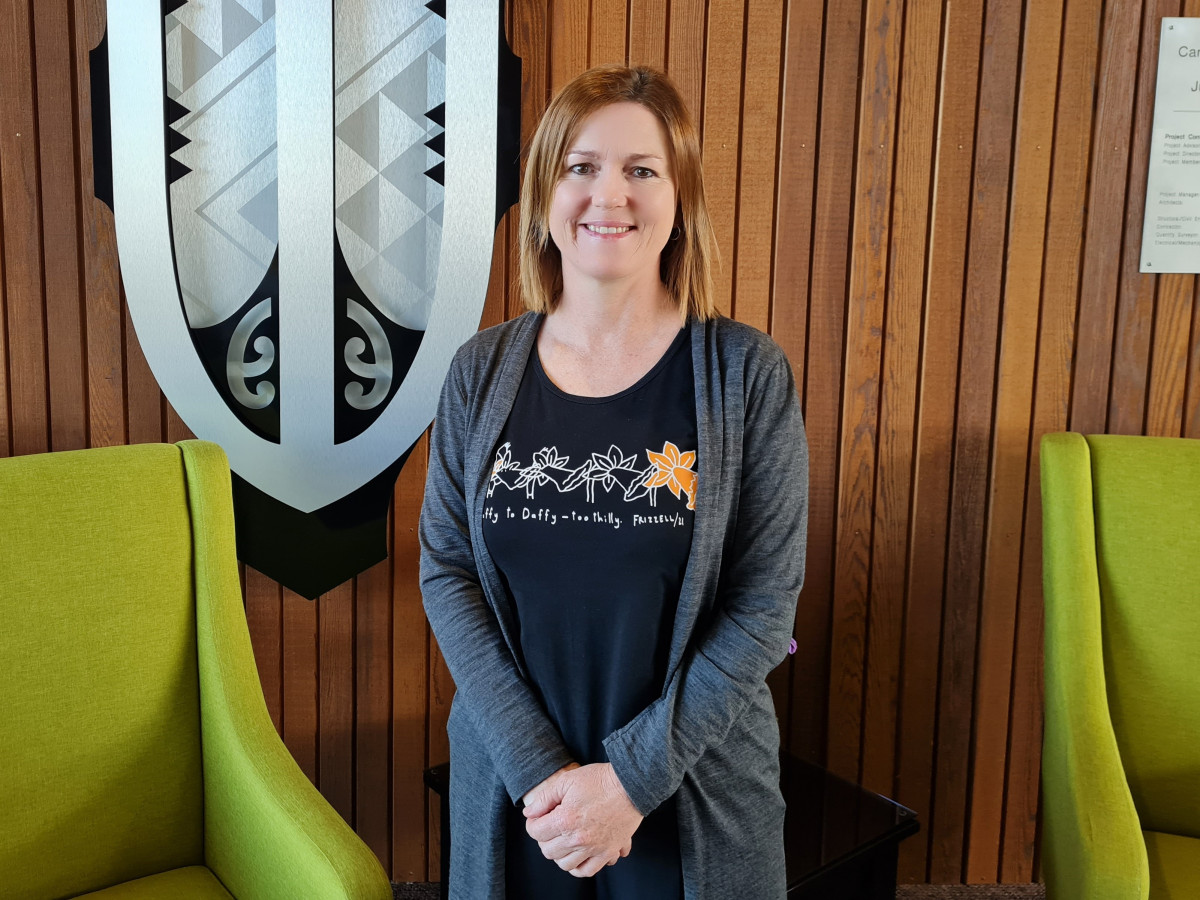“Someone can get off the massage table and you can see the difference in their face, it’s quite amazing sometimes. It doesn’t take much, and I don’t do anything magical, it’s just a lovely thing to do for someone and to have done.”
Louise Quertier has been a massage therapist at the Cancer Society’s Lions Lodge for the past four years. Massage, she says, has a lot of benefits and can help to reduce the pain and nausea associated with cancer treatment, as well as alleviate anxiety.
“Massage is very good at calming down the central nervous system and that includes a lot of those emotional reactions to stress and some physical reactions as well.
“There’s nothing mysterious about an oncology massage, you use the same techniques as a normal massage you just allow for how they’re feeling, the position they’re in, the site of their cancer. Practically everybody can get a massage on some level, even if it’s just hands and feet. Sometimes we have to position people differently, so if someone is unable to lie on their front we can pull a chair up and prop them forward against some pillows. It’s about what’s comfortable.”
Before coming to the Lodge, Louise worked in remedial massage for 20 years.
“I got to the stage where I felt like I could be doing something more meaningful with my skill. It’s rewarding seeing the difference you make to someone’s day or their sleep that night to help make their experience a bit more bearable.”
Louise, her colleague Krissy and Diana (in Tauranga) offer massage therapy to people with cancer at a reduced rate of just $10 for a half hour session. And the service is also available to carers as well.
Those further afield can make use of the outreach massage programme which connects clients with their local massage therapist. You don’t need to be signed up to Cancer Society to access this service, either. Just call 0800 22 77 44 or speak to your supportive care nurse.
It’s rewarding seeing the difference you make to someone’s day or their sleep that night to help make their experience a bit more bearable.
Louise Quertier, Lead Massage Therapist

